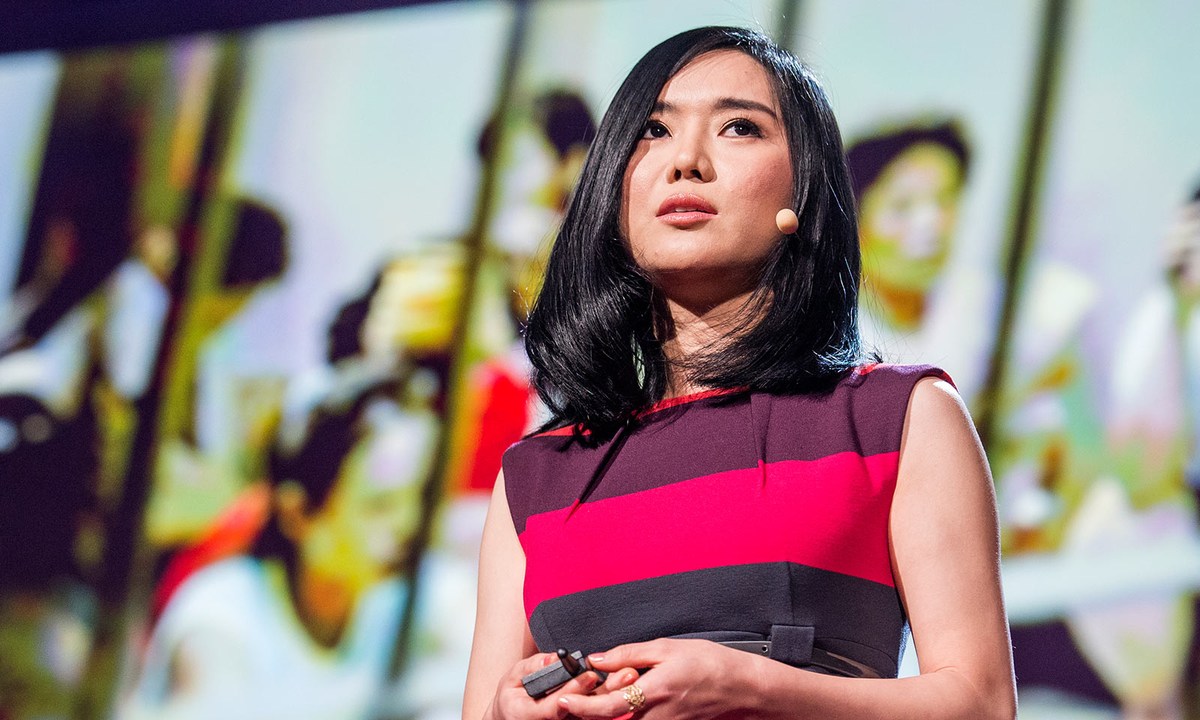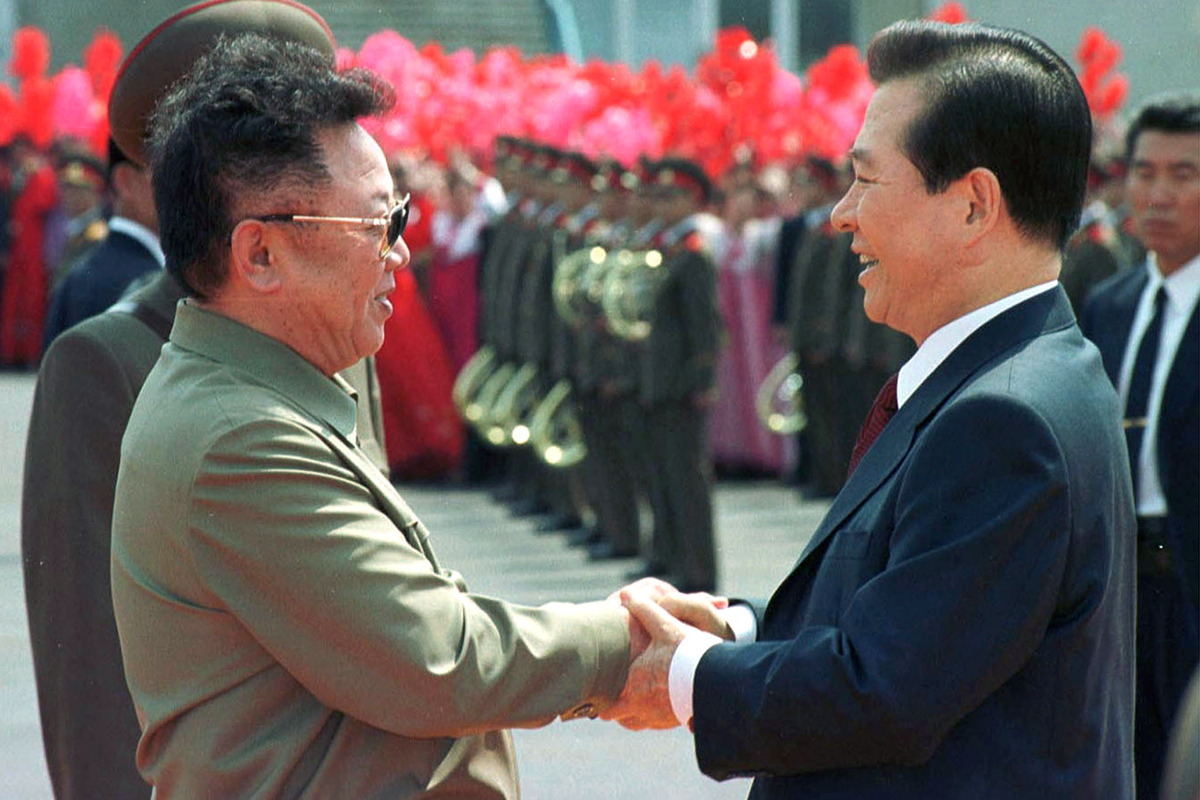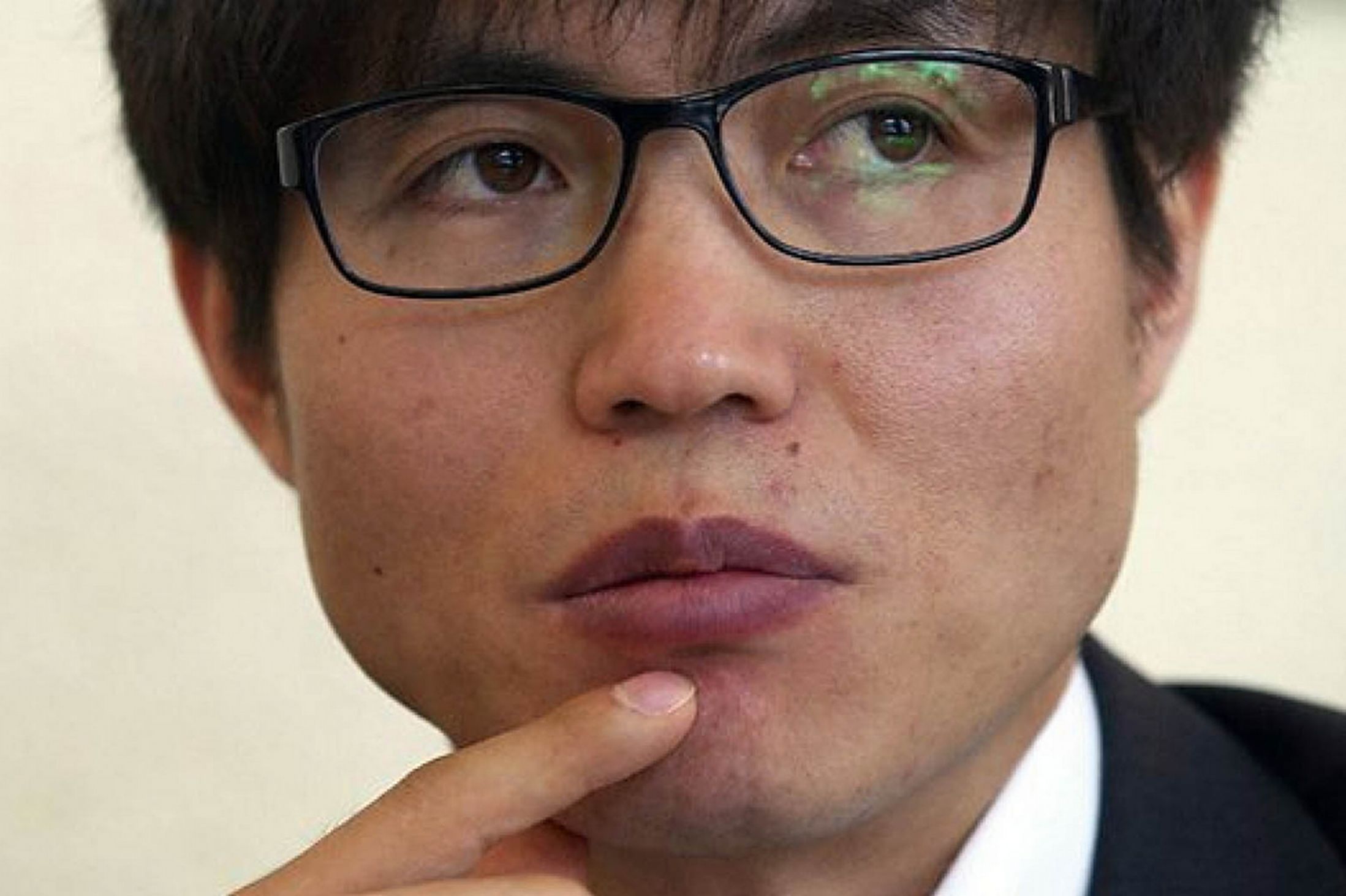Ms. Lee on Mr. Shin
Recently I wrote about the troubling case of North Korean defector Shin Dong-hyuk, who admitted to giving inaccurate accounts of his life in North Korea.
Now defector and advocate Hyeonseo Lee has written about Shin in the New York Times. With eloquence and far more personal, direct insight than I could ever provide, she’s made some of the same points I wanted to get across. Here’s the heart of it:
This unfolding saga is troubling to me and to other defectors who tell the truth about the horrors of life in the North. The furor over Mr. Shin’s confession is really a sideshow, a distraction from the larger issue: Pyongyang’s continuous abuse of human rights.
Mr. Shin has been examined by doctors who believe he was subjected to torture and child labor, given the evidence of his scars and unnaturally bowed arms. We shouldn’t lose sight of that when discussing his lies.
It’s easy to see how Mr. Shin was tempted to obscure the truth. For defectors, sometimes doing so is the only way to survive.
Beyond that, she talks about the hardships and challenges North Koreans face when they arrive in South Korea, and the need to give them with greater support, which organizations like Liberty in North Korea work to provide.
There are many reasons North Korean defectors lie, as Lee notes. But at its heart, the issue remains the North Korean regime and its human rights abuses, not the personal foibles and mistakes of some of its victims.
Ms. Lee on Mr. Shin
Recently I wrote about the troubling case of North Korean defector Shin Dong-hyuk, who admitted to giving inaccurate accounts of his life in North Korea.
Now defector and advocate Hyeonseo Lee has written about Shin in the New York Times. With eloquence and far more personal, direct insight than I could ever provide, she’s made some of the same points I wanted to get across. Here’s the heart of it:
This unfolding saga is troubling to me and to other defectors who tell the truth about the horrors of life in the North. The furor over Mr. Shin’s confession is really a sideshow, a distraction from the larger issue: Pyongyang’s continuous abuse of human rights.
Mr. Shin has been examined by doctors who believe he was subjected to torture and child labor, given the evidence of his scars and unnaturally bowed arms. We shouldn’t lose sight of that when discussing his lies.
It’s easy to see how Mr. Shin was tempted to obscure the truth. For defectors, sometimes doing so is the only way to survive.
Beyond that, she talks about the hardships and challenges North Koreans face when they arrive in South Korea, and the need to give them with greater support, which organizations like Liberty in North Korea work to provide.
There are many reasons North Korean defectors lie, as Lee notes. But at its heart, the issue remains the North Korean regime and its human rights abuses, not the personal foibles and mistakes of some of its victims.
Bell Call Taxi
The price of a chat
When Obama came to power, he made clear that he was willing to sit down and talk with the leadership of pretty much any country, including several that we have long considered enemies and threats. It’s a good principle. Conflict is expensive and talk is cheap. What harm could there be in at least keeping the lines of discussion open?
Except that talk is not always cheap. When South Korean President Roh Moo-hyun met with Kim Jong-il in 2000, the price South Korea paid for the privilege was $500 million. Further meetings have come with escalating costs. North Korea tried to get $10 billion in cash plus aid from President Lee Myung-bak in exchange for a meeting.
There’s a tendency on the South Korean left to see the conflict with North Korea as perpetuated by the South Korean right and the United States. If only the United States and South Korea would talk to North Korean leaders directly, instead of threatening them with isolation and sanctions and military might, the thinking goes, we could achieve peace on the Korean Peninsula.
This line of thinking made a certain amount of sense in the 1990s, during the Sunshine Policy era. The world’s communist regimes were either collapsing or transforming. The cold war was over. South Korea too was undergoing a profound political shift, from right-wing military dictatorship to left-wing democracy. President Kim Dae-jung was right to try a new approach to an old and serious problem.
It didn’t work.
The North Korean regime, it turned out, was pocketing the money it got from summits while continuing with unacceptable behavior, particularly its nuclear program. The regime has kept itself alive however it can, playing regional powers against each other, dealing in meth and missile parts, oppressing its citizens.
So when North Korea begins to talk about talking, we should look carefully to see whether they’re arriving hat in hand. Are they looking for a dialogue, or are they just looking for a handout? Considering how little has been gained from past talks with North Korea, neither South Korea nor the United States should buy what Pyongyang is selling. Let Pyongyang deliver some sample goods first — a constructive conversation of any sort at all, really — before South Korea spends more money on empty words.
Sexy Clap
“Sexy Clap” is a perfectly reasonable thing to call a K-pop song if you don’t know American English slang.
Cheer up trot
Haters
Up and down, front to back
North Korean defectors and the truth
North Korean defector and human rights activist Shin Dong-hyuk has recanted some of his testimony. He has admitted that aspects of the story he has told and retold about his experiences of torture and imprisonment in North Korea were wrong. Much of the testimony of defector Yeonmi Park has also been called into question.
It’s easy to see telling the truth in black and white terms: you say what’s so, or else you’re lying. But memory and truth-telling are not so simple. Before you judge Shin and Park — and certainly before you decide that all North Korean defector testimony is suspect — it’s worth looking a little more deeply into how we tell our own stories and what it means to tell the truth.
Learning to tell the truth
We assume that our concept of the truth is universal and inborn. It’s not. As Americans, we learn from a young age the importance of telling the truth, even if it’s a truth no one wants to hear or that might have negative consequences for us. That’s what the story of George Washington and the cherry tree is about. We also spend decades in school learning critical thinking skills, embedding us in a particular theory of truth where things are considered more true when we footnote our sources, read closely, show our work in math class.
North Koreans have none of that. Suki Kim has written about the difficulty of assigning her North Korean students to write essays: “Writing inevitably consisted of an endless repetition of [Kim Jong Il’s] achievements, none of which was ever verified, since they lacked the concept of backing up a claim with evidence.” She is speaking here of the intellectual elite among North Koreans. Someone like Shin Dong-hyuk, raised in North Korean prison camps, would have even less capacity for critical thinking, for sorting fact from fiction.
We also tend to imagine as universal our ideas that the truth is something independent and separate from us, and that there is moral value in knowing and admitting that independent truth, regardless of the consequences. North Koreans are raised in a culture where speaking or even knowing certain truths is dangerous.
But no one ever tells North Koreans, “Do not speak the following truths or facts.” Instead, the very concept of what is true is altered: what is true is what can be spoken, and what can be spoken is what is true. North Koreans are not trained to consider sources, whether their own empirical experience or otherwise. What’s true is what everyone says is true. That doesn’t mean truth is static or that new truths can’t ever emerge — even truths that go against the government line — but rather that truth value is increased by perceived consensus and undermined by the sense that no one else is saying the same thing.
Memory and politics
Now imagine North Koreans arriving in South Korea. They spend an initial period in isolation, being debriefed by intelligence officers (incidentally, in what one defector described as the most luxurious accommodations she’d ever experienced). They are being asked by officials in their new homeland to recall details from years or decades earlier, from their childhoods. They have no access to maps, to Wikipedia, to family photos. They can’t ask their parents what really happened. They are being asked to reconstruct everything, but memory is notoriously slippery. Events move out of order, they shift and change. (This happens to Westerners too: in my research on Korean shamanism, my main informant has had to modify her story several times, and there are certain incidents that other informants remember differently.)
Then these defectors enter South Korean society, where the political spectrum offers two main ways of thinking about North Korea. The left — still traumatized by the old right-wing dictatorship’s habit of calling every democracy protestor a North Korean spy — sees North Korea as unfairly maligned and threatened. They believe that South Korean and American militarism and provocation perpetuate the status quo on the peninsula, keeping the right in power and keeping North Korea defensive and isolated. They imagine that unilateral moves by South Korea, and especially the removal of US troops, would bring about a substantive shift in North Korea. The right sees North Korea as an unreliable negotiating partner and an ongoing military threat. They see North Korea as exacerbating tensions to manipulate the surrounding powers and perpetuate their regime, and they see the left as hopelessly naive. They also see North Korean defectors as suspect, potentially spies sent by the North Koreans to cause problems in the south.
Most North Korean defectors choose to live quietly, without engaging in political action. But for those who feel compelled to do something about the homeland and people they left behind, they must find their way within these competing narratives. The right is far more receptive to defectors than the left, and the right rewards stories that show how bad the North Korean regime is. Internationally too, stories of suffering and deprivation are good capital. They’re what we want to hear about North Korea.
But there’s more to it than that. North Korean defectors are trying to piece together coherent narratives from fragments of memory. When they arrive in the free world, they are bombarded with information they could never have accessed: satellite images of places they had mapped differently in their minds, Wikipedia entries that clarify the dates of events they remember in different order, competing accounts from other defectors that call into question particular memories. Defectors’ stories change because they are struggling to understand what is actually true and how to express it. Yeonmi Park, for example, has responded to criticisms of her changing accounts:
Much of the time, there was miscommunication because of a language barrier. I have only learned English in the last year or so, and I’m trying hard to improve every day to be a better advocate for my people. I apologize for any misunderstandings. For example, I never said that I saw executions in Hyesan. My friends’ mother was executed in a small city in central North Korea where my mother still has relatives (which is why I don’t want to name it) … Also, I apologize that there have been times when my childhood memories were not perfect, like how long my father was sentenced to prison. Now I am checking with my mom and others to correct everything.
What’s told and what’s true
So does all this mean that we can’t believe North Korean defectors?
No. What it means is that we should be careful not to take any one personal narrative as the solid, documented, verified truth. Each defector is a human being. Some human beings are more honest than others, some have better memories. Some, like Shin Dong-hyuk, keep secrets.
We should also be careful not to trust critiques too quickly. The Diplomat got a number of its facts wrong in trying to show that Yeonmi Park got her facts wrong. Nor are defectors the only ones with political agendas. Soft-pedaling North Korea’s human rights record — saying it’s not as bad as has been reported, holding up the human rights shortcomings of other nations in comparison — serves particular agendas.
What we can trust is the weight of testimony from hundreds or thousands of defectors. For example, the UN report on North Korean human rights violations relied on the testimony of 80 witnesses. When defector after defector describes the harrowing conditions of detention and torture in similar terms, it becomes less important whether this one was tortured at age 13 or age 20, whether that one saw an execution in one town or another.
What matters is that defector after defector talks about fear, imprisonment, starvation, beatings, executions. These are not fantasies, and they’re not a grand plot by South Korea’s intelligence services, and they’re not a trick of the American military-industrial complex to keep Northeast Asia in a state of war. We can see satellite images of prison camps. We can see the scars on Shin Dong-hyuk’s body.



